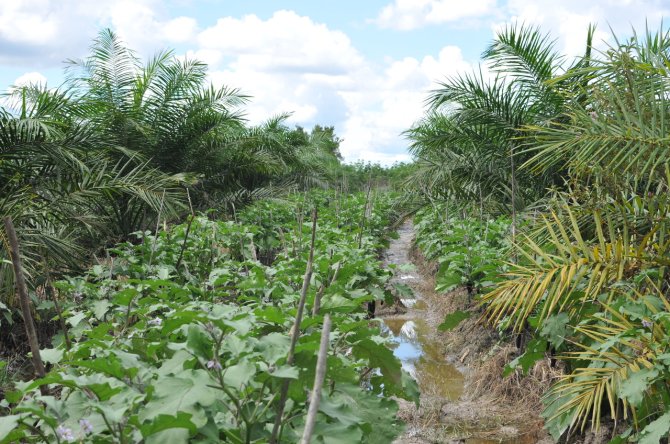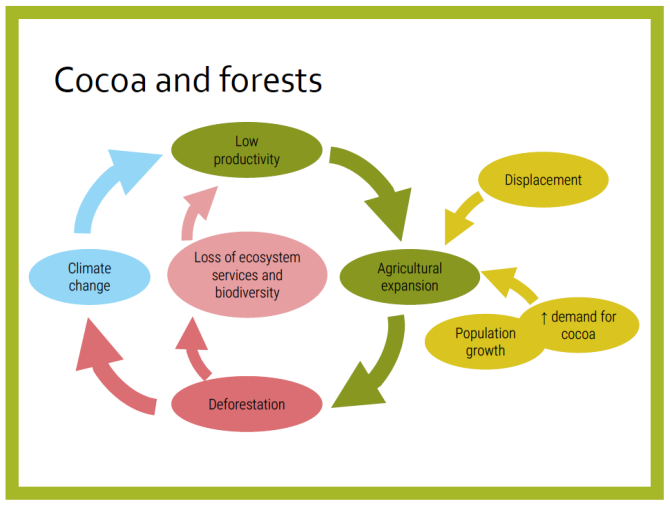Student information
Sustainable production of perennial crops
Contact persons:
Maja Slingerland: maja.slingerland@wur.nl
Danaë Rozendaal: danae.rozendaal@wur.nl
Lotte Woittiez: lotte.woittiez@wur.nl
Tropical perennial cropping (including agroforestry) systems are a source of income for millions of households around the world. The products (such as palm oil, cocoa, coffee, tea, rubber, bananas, and other fruits) play a key role in the diets of local and global populations, providing nutrition as well as delicious flavours. Perennial cropping systems have their own unique opportunities in terms of in-field biodiversity, carbon capture, efficient use of nutrients and water, preventing erosion, enhancing soil quality, and providing farmers with a stable source of income. On the other hand, these systems face important challenges, such as the lack of flexibility, poor planting materials, ageing of plantations, poor management, long and opaque supply chains, deforestation issues, and poor commodity pricing leading to poverty among growers. Climate change also affects the future of perennial production systems. With our research we aim to contribute to more sustainable, profitable and resilient tropical perennial cropping systems.

For oil palm, our research focuses on several main themes, especially 1) Yield gaps in oil palm & crop modelling; 2) Good agronomic practices & intercropping (especially for smallholders) and 3) Sustainability and certification. We mainly work in Indonesia, Malaysia, Ghana, and Colombia.
In cocoa production there are specific threats to sustainability such as strong dependency on agrochemicals to deal with cocoa's many pest and disease problems. Our cocoa research focuses on five main themes: 1) Cocoa mineral nutrition; 2) Good Agricultural Practices in cocoa; 3) Cocoa and living income; 4) Ecosystem services such as biodiversity conservation and carbon sequestration that cocoa agroforestry systems provide; and 5) Cocoa crop growth modelling (climate change effects and yield gaps). Building on these four themes, we also seek to understand the interaction between production systems, climate change adaptation and deforestation to inform different pathways for the future of cocoa (linking to theme 5). We work in many of the cocoa producing countries, especially in Côte d'Ivoire, Ghana, Nigeria, Cameroon, Ecuador, and Indonesia.

Our research work on East African Highland banana cropping systems mostly takes place in Uganda. We work on the sustainable intensification of banana farming systems through integrated soil fertility management and diversification. The prospects of relieving drought stress through irrigation are also investigated. We are developing a banana growth model, to allow the exploration of potential solutions in a wide variety of agro-ecological contexts and the integration with other farming activities, such as livestock keeping. Furthermore, we engage with value chain actors to explore solutions in the marketing and processing steps of East African Highland banana.
In combination with social sciences we also facilitate research on technology adoption and adaptation processes and learning, farmers diversity and livelihood, service delivery and business models, landscape approaches, public and private policies related to each of the perennial crops.
For more information about our research on perennial crops see also https://perennialcrops.wur.nl/.